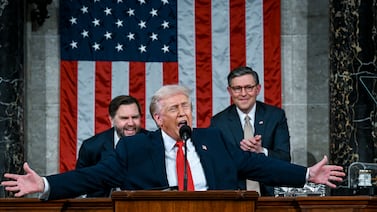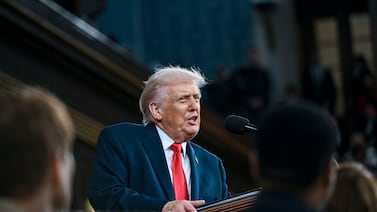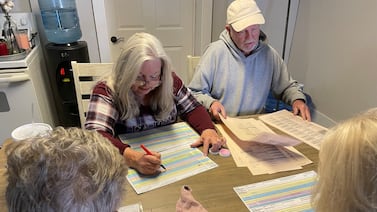My road to Votebeat has been a circuitous one.
After starting my career at local newspapers, I was a relatively green Washington reporter during the 2008 presidential primaries, covering lobbying amidst the backlash to congressional scandals that had prompted Congress to pass new ethics restrictions.
On the campaign trail, presidential candidates from both parties — including Sens. John McCain and Barack Obama, the eventual presidential nominees — were taking pains to distance themselves from the much-reviled K Street. But behind the scenes, it was easy to see the influence industry was intertwined with campaigns and elections. I wrote about watching lobbyists door-knock and set up middle-school gyms for stump speeches after they used their own time and money to travel to towns like Salem, N.H., and volunteer for the campaigns.
In 2010, the Supreme Court’s ruling in Citizens United v. FEC ushered in a new age for money in politics. I spent years following the money, tracking it through obscure corporate filings and byzantine disclosures, piecing together shreds of documentation and tips from sources to expose under-the-radar efforts to influence voters. An investigative reporter at the Center for Public Integrity from 2014 on, I also investigated ethics and accountability, sometimes editing as well as reporting.
In 2018, things started to shift for me, mostly because of a series of stories I wrote on barriers to the ballot box for Native American voters in North Dakota.
All of a sudden, I wasn’t writing about the influential and the wealthy. That work brought me back to earlier in my career, covering local communities for local papers — the work that taught me politics and government affected real people’s lives, and it wasn’t a game.
As I dug into the ways in which the rules of voting could keep people from casting ballots, I realized this was, in some important ways, the flip side of political money and influence investigations.
Every interest group knew that in order to get its preferred policies and laws on the books, their preferred candidates had to win elections. And the rules governing voting, after all, were set by politicians. Powerful interests were lobbying them in hopes of shaping access to the franchise in ways that would benefit one side or the other. In many cases, political parties and outside interest groups, hardly disinterested parties, were bringing lawsuits over voting access.
A story I’d written a million times was revealing a new facet.
I realized there was a through line connecting all of it — lobbying, campaign finance and elections. Just like lobbying and campaign finance, elections are governed by a patchwork of rules and regulations that don’t necessarily make intuitive sense, and that differ from state to state. The laws and procedures are complicated, and most people don’t understand them as well as they think they do. But boy, do they matter.
Clearly, this — explaining complicated things understandably and watchdogging special interests trying to work the ref — was my journalistic sweet spot.
A few years earlier, the Supreme Court had struck down part of the landmark Voting Rights Act, reshaping the legal landscape. Former President Donald Trump was regularly leveling unsupported accusations of voter fraud and rigged elections. And election administrators were stuck in the middle of a food fight, trying to run smooth elections during a pandemic while they wrestled with the need to shore up public trust.
But I also started thinking a lot about the value of covering voting access and elections from a national perspective versus a local one.
In the U.S., the rules and laws governing elections are different from state to state. And over and over again, I found myself drawn to stories that, yes, had national resonance — but were also deeply rooted in specific places. In some cases, I partnered with local reporters, but in others, I worried about missing something important that a local reporter would more easily see.
And then came Votebeat, a chance to help launch a news outlet focused on better coverage of elections and voter access. I chose to join Votebeat because I think it’s a local news model that can succeed, as well as an idea that speaks to the moment.
Votebeat’s journalistic values — reporting the truth about elections and voting at a time of crisis in America, with reporting rooted in local communities — align with my own.
We’re assembling a talented and committed staff to report with expertise, vigor, and nuance. We’re going to shed new light on a complicated system so people have information they can trust. We’ll contribute to informed debate and healthier public discourse.
And you’d better believe we’re going to hold powerful actors accountable to the public.
So watch this space. Because there’s more coming soon, and you’re going to want to read it.
Carrie Levine is Votebeat’s story editor and is based in Washington, D.C. Contact Carrie at clevine@votebeat.org.





